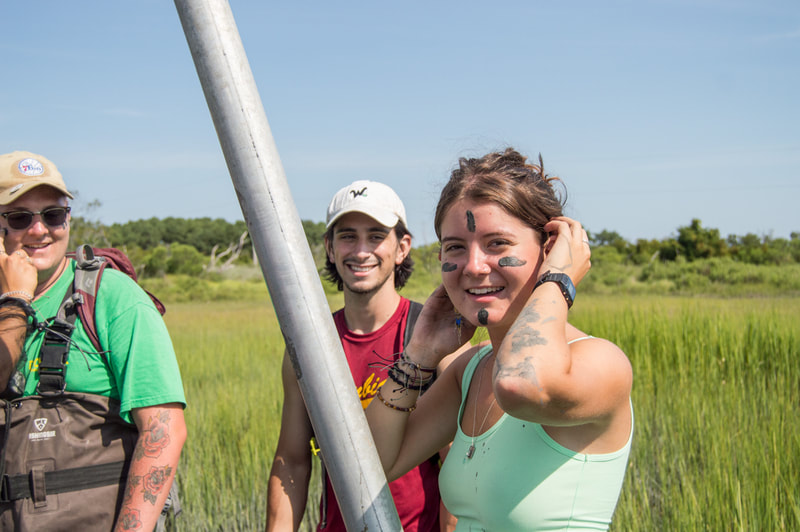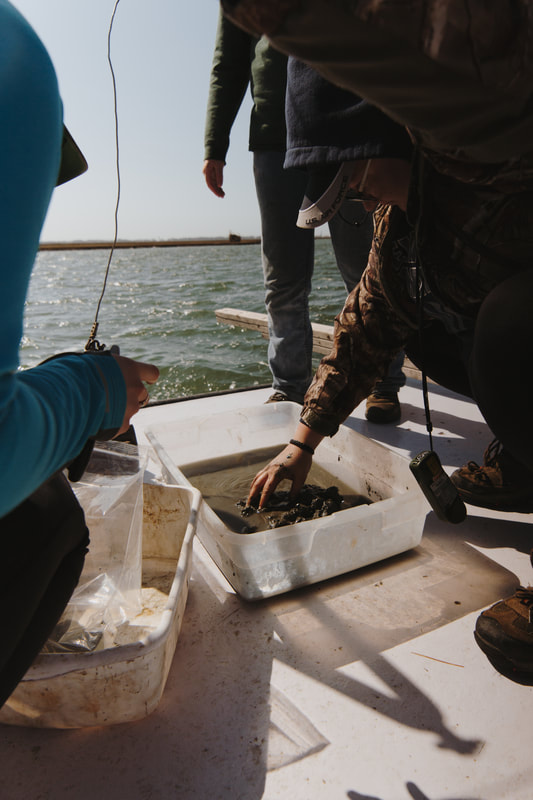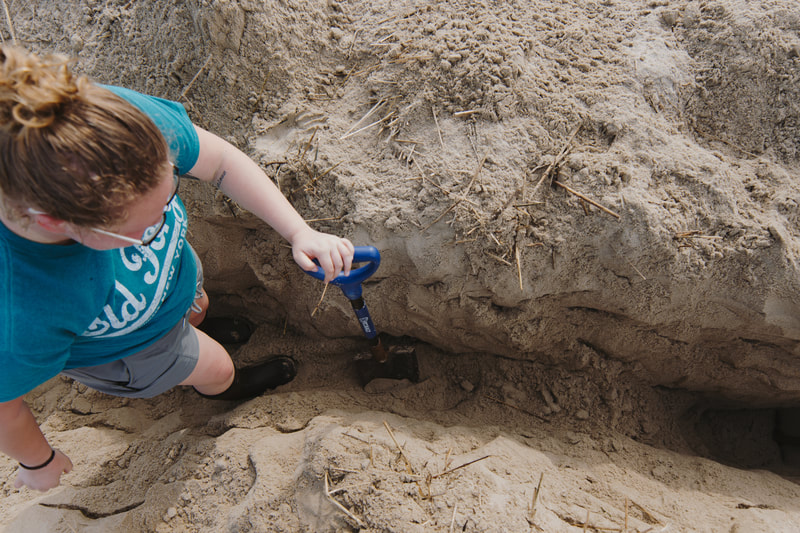GEOLOGICAL FIELD MAPPING - ESCI 422
DR. TALOR WALSH - MILLERSVILLE UNIVERSITY
aCourse Description:
Examination and interpretation of geologic materials and structures in the field. Students prepare a geologic map, stratigraphic column and structural cross-sections of an assigned field area. This course fulfills the field geology course requirements that are needed to qualify for licensure as a professional geologist or as a geologist in training in the Commonwealth of Pennsylvania (49 Pa Code §37.36). Learning to use and apply geological field techniques is critical for employment as a professional geologist in industry (i.e. environmental geology, hydrogeology, geotechnical engineering, mining, oil and gas), in government service, or in academia.
Marketable Skills Gained from this Course:
General Description of Field Activities:
Geologic mapping, groundwater and surface water sampling and analysis, sediment sampling, fracture mapping and analysis, measuring stratigraphy, describing rock core, mapping fault zones, and making and analyzing thin sections.
Approximate Amount of Course Time in the Field:
80% field, 10% classroom, 10% labratory
Prerequisites:
Physical Geology, Historical Geology, and at least one other geology course.
Required Textbooks or Supplies:
Recommended Textbooks or Supplies:
Number of Students in Course:
8-14
Chincoteague Bay Field Station Fee:
Field Station Fee: approximately $900-$1,300 dependent on enrollment
*This course has 2 weeks of travel components.
Fees are subject to change at the discretion of the board of directors
* Does not include university tuition or fees. For specific policy on CBFS fees, click HERE.
Examination and interpretation of geologic materials and structures in the field. Students prepare a geologic map, stratigraphic column and structural cross-sections of an assigned field area. This course fulfills the field geology course requirements that are needed to qualify for licensure as a professional geologist or as a geologist in training in the Commonwealth of Pennsylvania (49 Pa Code §37.36). Learning to use and apply geological field techniques is critical for employment as a professional geologist in industry (i.e. environmental geology, hydrogeology, geotechnical engineering, mining, oil and gas), in government service, or in academia.
Marketable Skills Gained from this Course:
- Learn traditional geologic mapping techniques, including:
- Locating positions on a map and using a compass-clinometer
- Measuring distance and stratigraphic thickness
- Collecting geologic data in the field on multiple scales and plotting it appropriately
- Sketching exposures, and making small scale maps
- Recording structural information on maps including: fractures, folds, faults, joints, and veins
- Correctly identifying rocks in the field
- Interpreting and working with rocks, or “reading” outcrops
- Collecting and labelling samples (sediment, groundwater, surface water, and rock), including oriented samples of rock
- Learn how technology is used in geologic mapping.
- Produce detailed and accurate reports that summarize geologic findings; students should be able to construct geologic maps, cross-sections, and stratigraphic columns.
- Use field observations to interpret the geologic history of an area and integrate observations with regional data and previously published reports.
General Description of Field Activities:
Geologic mapping, groundwater and surface water sampling and analysis, sediment sampling, fracture mapping and analysis, measuring stratigraphy, describing rock core, mapping fault zones, and making and analyzing thin sections.
Approximate Amount of Course Time in the Field:
80% field, 10% classroom, 10% labratory
Prerequisites:
Physical Geology, Historical Geology, and at least one other geology course.
Required Textbooks or Supplies:
- Geologist’s compass. *Note-This may be borrowed from instructor with deposit.
- Field Notebook
- Clipboard
- Drafting and writing materials: Pen, pencil, eraser, ruler, protractor, compass, set squares (two triangles), colored pencils, tracing paper, graph paper (preferably cm scale)
- Backpack or bag for holding materials in field
Recommended Textbooks or Supplies:
- Rock hammer
- Hand lense
Number of Students in Course:
8-14
Chincoteague Bay Field Station Fee:
Field Station Fee: approximately $900-$1,300 dependent on enrollment
*This course has 2 weeks of travel components.
Fees are subject to change at the discretion of the board of directors
* Does not include university tuition or fees. For specific policy on CBFS fees, click HERE.




